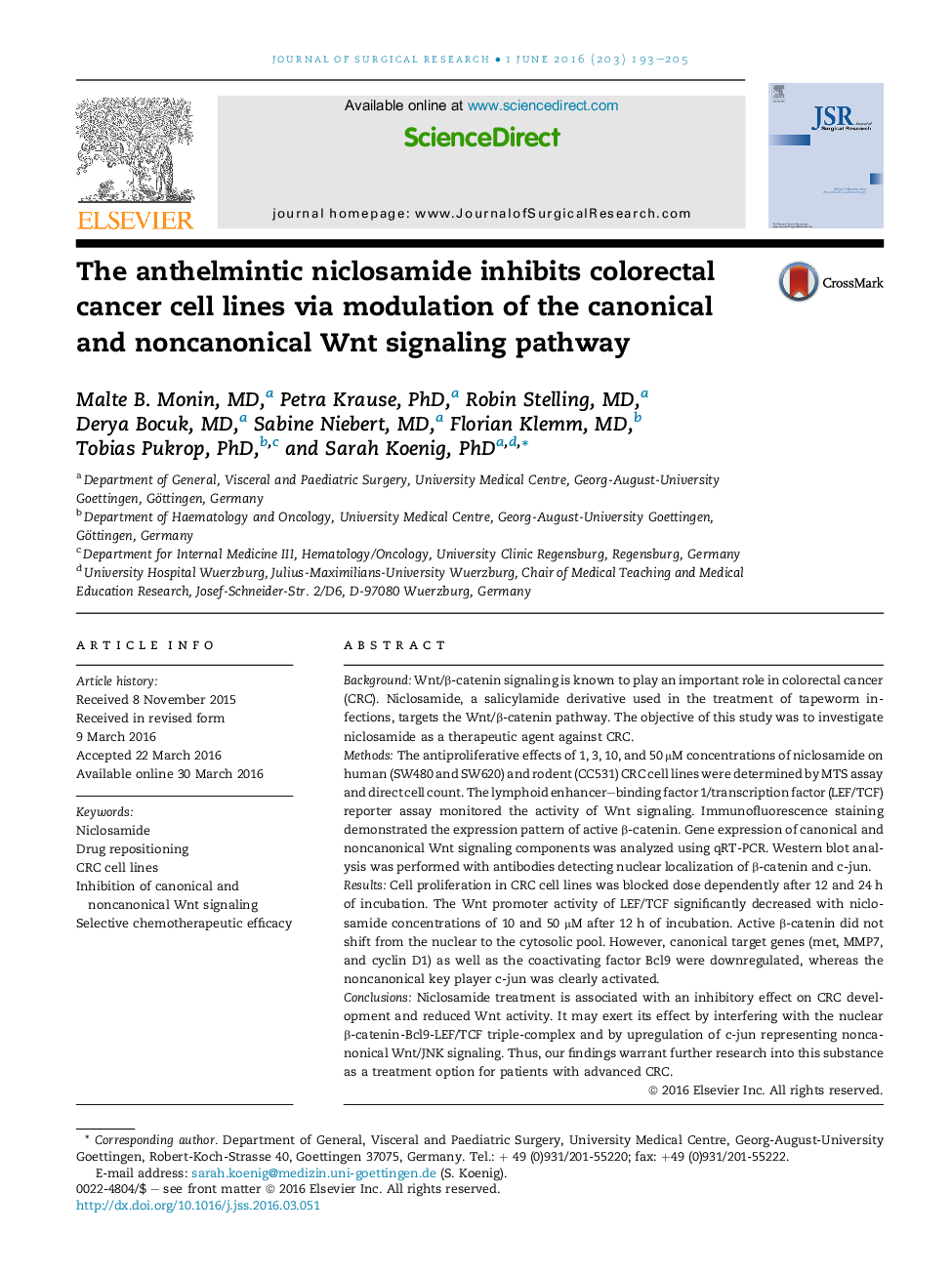| Article ID | Journal | Published Year | Pages | File Type |
|---|---|---|---|---|
| 4299199 | Journal of Surgical Research | 2016 | 13 Pages |
BackgroundWnt/β-catenin signaling is known to play an important role in colorectal cancer (CRC). Niclosamide, a salicylamide derivative used in the treatment of tapeworm infections, targets the Wnt/β-catenin pathway. The objective of this study was to investigate niclosamide as a therapeutic agent against CRC.MethodsThe antiproliferative effects of 1, 3, 10, and 50 μM concentrations of niclosamide on human (SW480 and SW620) and rodent (CC531) CRC cell lines were determined by MTS assay and direct cell count. The lymphoid enhancer–binding factor 1/transcription factor (LEF/TCF) reporter assay monitored the activity of Wnt signaling. Immunofluorescence staining demonstrated the expression pattern of active β-catenin. Gene expression of canonical and noncanonical Wnt signaling components was analyzed using qRT-PCR. Western blot analysis was performed with antibodies detecting nuclear localization of β-catenin and c-jun.ResultsCell proliferation in CRC cell lines was blocked dose dependently after 12 and 24 h of incubation. The Wnt promoter activity of LEF/TCF significantly decreased with niclosamide concentrations of 10 and 50 μM after 12 h of incubation. Active β-catenin did not shift from the nuclear to the cytosolic pool. However, canonical target genes (met, MMP7, and cyclin D1) as well as the coactivating factor Bcl9 were downregulated, whereas the noncanonical key player c-jun was clearly activated.ConclusionsNiclosamide treatment is associated with an inhibitory effect on CRC development and reduced Wnt activity. It may exert its effect by interfering with the nuclear β-catenin-Bcl9-LEF/TCF triple-complex and by upregulation of c-jun representing noncanonical Wnt/JNK signaling. Thus, our findings warrant further research into this substance as a treatment option for patients with advanced CRC.
